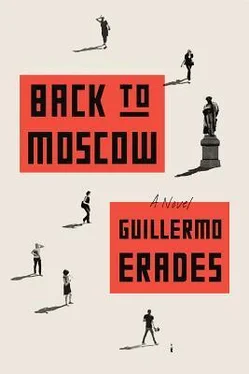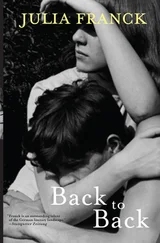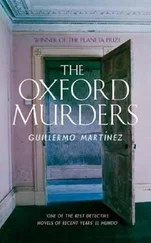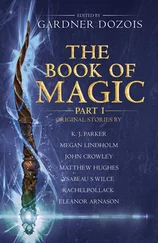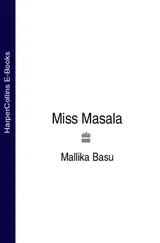‘Everything.’
She took a sip of tea, placed the cup back on the table. She looked at me, her thick glasses steamed up. Her golden tooth was framed by a dead smile, her thoughts surely lost in the 1970s. Lyudmila Aleksandrovna belonged to the generation of Muscovites who were too old and too soviet to embrace the changes that the perestroika had brought to the country.
‘Believe me,’ she said. ‘Train, accommodation, meals, everything was covered. And look at things now, with our pitiful university salaries, we can hardly afford to buy bread and kolbasa. And the streets of Moscow are full of brainless oligarchs driving expensive German cars. Russia is a bardak.’
‘Some things seem to be better now,’ I said, trying to cheer her up a little. ‘You know, with the new president. The economy is doing great.’
‘Nothing’s changed. Don’t be fooled because you live in the centre of Moscow, Martin. Most people in this country don’t have enough to eat.’
I unwrapped a block of chocolate I had bought in the metro, broke it into pieces and placed it on the desk, among the stacks of books. Lyudmila Aleksandrovna took the biggest piece and bit it with gusto.
‘Martin, you are going to have to work a bit harder, you know. I haven’t seen any real work from you in the last two or three months.’
She took a sip of tea.
‘I’ve been doing some interesting reading lately,’ I said. ‘I’ve gone through a lot of Chekhov, as you recommended.’
‘It’s good that you read the works of Anton Pavlovich,’ she said, ‘but, as I told you before, proper research is not only about reading the books. You need to read academic papers, talk to experts, compare views. You need to check those sociological studies of women that we talked about. I suppose that’s not what you do when you go out at night. After all, Martin, you are in Moscow to write your thesis, not to go to discoteks. This is MGU, the Moscow State University. Students all over would kill for the chance you have to work in this faculty.’
I straightened my back and gripped my cup of tea. ‘You are absolutely right, Lyudmila Aleksandrovna. I do need to focus a bit more. But, you know, at this stage of my research I’m trying to learn more about real people.’
‘In what sense?’
‘Before writing about literary characters, I feel I need to learn about the real Russian mentality. You know, about the intricacies of the Mysterious Russian Soul.’
I’d learned by now that Russians loved to hear the expression Mysterious Russian Soul . It made them feel special, unique. The Russians I met often referred to the Mysterious Russian Soul to describe deep feelings that, I was told, a foreigner like me would never be able to comprehend.
‘Martin, you have been in Moscow for more than a year. The Russian soul has no more mysteries for you. It’s about time you started to put what you’ve learned down on paper. You need to write your thesis. Otherwise you might end up losing your scholarship.’
There was no point arguing with Lyudmila Aleksandrovna. In her long academic life, she’d surely seen too many students trying to bullshit their way out of work. I was not going to win her over with my revolutionary methodology of using dyevs as primary sources.
Then, out of nowhere, Lyudmila Aleksandrovna launched into a lecture about the lishniy chelovek, the superfluous man, a type of male character common in nineteenth-century Russian literature. ‘Superfluous men,’ Lyudmila Aleksandrovna was saying, ‘are typically born into wealth and privilege. They are sensitive men, like you, Martin. They are also very cynical. You know, they disregard social values.’ She took her glasses off and wiped them.
‘Why superfluous?’ I asked.
‘They don’t contribute anything positive to society. They suffer existential boredom. Often, they end up challenging other men to useless duels.’
‘Existential boredom,’ I said.
She put her glasses back on, now smiling. ‘Of course the father of all superfluous men, the model to follow, is Evgeny Onegin himself.’
I glanced around the cramped office, at the piles of books on the floor, at the book-lined walls, at the small window, partly obscured by books. I remembered how puzzled I was when, during one of our first meetings, I’d spotted the brown adhesive tape around the window frame. By now, at the start of my second winter in Moscow, I’d learned that the tape was a necessity in old buildings, to avoid a freezing draught seeping in during the cold months.
Looking back at Lyudmila Aleksandrovna’s smile, I couldn’t tell if she was mocking me, or truly accusing me of being superfluous.
‘There are other examples,’ she said, ‘of course. I presume you’ve read Turgenev’s Diary of a Superfluous Man .’
‘Not yet.’
‘You could also say that our dear Pechorin in A Hero of Our Time is one of them. And, of course, our good old friend Oblomov.’
‘ Oblomov ,’ I said. ‘I’ve read that.’ Goncharov’s Oblomov was the story of this guy who’s so bored and uninterested in the world that he spends a large part of the book trying to get out of bed.
Lyudmila Aleksandrovna was now pointing her finger at me. ‘Martin, tell me, are you a superfluous man?’
‘I’m not into duels, if that’s what you mean.’
‘I’m serious,’ she said.
‘I don’t know, Lyudmila Aleksandrovna. I admit that my contribution to society is rather limited. But existential boredom, I don’t know.’
‘Think about it,’ she said.
In the end, I agreed to bring an entire outline of thesis chapters to our next meeting. We then talked about the impossible traffic in Moscow and she gave me a speech — a version of which I’d heard often from other Muscovites — about the city having the most efficient and beautiful metro system in the world.
Before leaving her office, I placed two theatre tickets on her desk — Chekhov’s Three Sisters at Taganskaya.
‘This is for you,’ I said. I’d been told that MGU professors expected little presents every now and then from their students. She stood up and thanked me for the tickets, said she would take her daughter to the theatre with her.
As I left Lyudmila Aleksandrovna’s office I was wondering who, among men, is not superfluous.
I HAD SOME SPARE TIME after seeing Lyudmila Aleksandrovna, so I decided to visit the university’s second-hand bookshops. Browsing through the Russian literature section I found an edition of War and Peace in two volumes, printed in 1944, with cardboard covers and a beautiful old-paper smell. I bought the two volumes for a hundred and forty rubles, about the price of a vodka shot in Propaganda.
I had arranged to meet Ira for lunch at the main stolovaya. I found her standing outside the entrance, reading a book in English. We said hello and I showed her my purchase. She seemed unimpressed.
‘Sergey’s mum has so many of these old books,’ she said. ‘We store them at the dacha.’ She dropped her book into a plastic bag. ‘Let’s eat. I’m starving.’
We stood at the end of the food queue. Ira looked thinner, her watery eyes brighter. When we reached the front, a sour-faced babushka with a paper kitchen hat loaded our trays with borsch, chicken, buckwheat. To drink we each took a glass of syrupy kompot. At the cashier’s desk I pointed at both our trays, but Ira insisted on paying for her own food.
‘It’s nice to be back at the university,’ I said, as we sat at one of the big tables by the window. I could see the courtyard covered in fresh snow. ‘I hardly come down these days.’
‘How’s the research going?’
‘I’m reading stuff,’ I said. ‘Thinking, meeting people. Just not writing that much. What about you, how are things?’
Читать дальше
